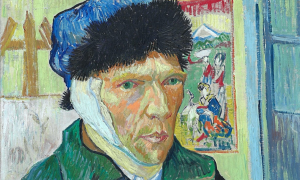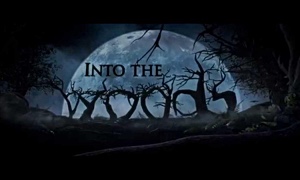Home » Jazz Articles » Shrinktunes » New Developments on the 'Mad Creative' Front
New Developments on the 'Mad Creative' Front
But just as the article about crazy bebeoppers appeared, a miraculous thing happened: the American Psychiatric Association did #2 in public! They admitted that there's no real biological proof that mental 'illnesses' exist.
In the past 10 months, there've been a few interesting blips on the screen: a survey which suggests that jazz musicians are unaffected by the "mad creative" myth, a British Journal of Psychiatry article that proved the opposite, and a startling, unprecedented confession by the American Psychiatric Association that mental "illness" isn't a real "illness" at all. These blips, in order:
Jazz musicians don't care that society thinks they're crazy
I wrote a three-part series on the "mad creative" myth for the psych journal "Ethical Human Sciences and Services: An International Journal of Critical Inquiry." For the third installment, which appeared in their summer 2003 issue, I did a little survey, e-mailing 52 successful jazz musicians to learn how they coped with the myth. Thirty-five responded, with most reporting that the myth was basically irrelevant to their lives — if anything made them crazy, it was the hassle of trying to make a living in jazz.
This was a big surprise. Irrelevant?? Most musicians I know are aware of the myth, and while some see the humor in it, or consider it a badge of belonging ("but of course we're all nuts!"), others worry about having a ticking psychological time bomb in their heads. When the majority of my sample shrugged it off, I wondered whether I was more upset about the "mad creative" label than the people who are actually slapped with it. Another possibility was that my sample was so seasoned and successful that they were no longer concerned about what people fantasize about them.
Take two: Jazz musicians do care...
After my survey, I got off my white horse and busy with other things. Then it turned around again. In September, the British Journal of Psychiatry published "Forty Lives in the Bebop Business: Mental health in a group of eminent jazz musicians" which set off a small firestorm in the jazz world. The "news" that occupational madness had been "confirmed" once again went buzzing through the lists. Apparently jazzers were interested after all. So off I went to the BJP site, where I paid my eight bucks and downloaded the article.
The "news" is that "Forty lives..." was a predictable pile of pseudoscience, part of the tiresome tradition of making wobbly diagnoses of dead people with biographical and secondhand information. The author, Geoffrey Wills, emphasized the drug problems of the bebop generation, put dubious labels on many of them, and padded out the rest. For example, even Diz — that most amiable, stable, non-addicted and productive of legends — is thrown into the mix because he once said that he was beaten by his father. Thankfully he wasn't put on the "disordered" list, but his inclusion was clearly intended to puff up Wills's case that there was something generically wrong with all of the greats. The strains and stretching in the piece inspired me to fire off a response to the journal, which, as of this writing, is under consideration.
UPDATE: My answer to Wills was published in the February 2004 British Journal of Psychiatry, together with his reply to me. After seeing it, I wrote a response to his reply (!), which will appear in their April, 2004 issue. I'm happy that this controversy is finally getting some serious ink...
What is mental "illness"? Anyway?
Wills's article led me back to some familiar questions, like 1) why are people so invested in the idea that creative people are doomed to mental "illness" and 2) when will the whole profession admit that they're not talking about "illness" at all, but only a group of behaviors they've chosen to call a "disease" so they can throw pills at it? I have some thoughts about (1), which I'll save for another time. But just as the article about crazy bebeoppers appeared, a miraculous thing happened: the American Psychiatric Association (APA) did #2 in public! They admitted that there's no real biological proof that mental "illnesses" exist.
The APA was goaded into it by their most recent battle with MindFreedom, an organization of psychiatric "survivors" that resists forced drugging, among other things. MindFreedom had sponsored a three-week hunger strike to protest the APA's claim that mental "illness" is a valid medical entity, despite their continued lack of hard evidence. The strike got enough publicity to compel the APA to respond — and twice, no less. Trust me, this is a rare event.
I got a copy of their second, more expansive press release (#03-39, September 26, 2003), which is equal parts flag-waving and self-serving ambiguity. It begins by reporting that "the Nation has doubled its spending on mental health in the past five years," which has "greatly improved our ability to treat severe mental and behavioral disorders" — but does not specify what these improvements have been. It ends with a pledge to achieve "the President's New Freedom Mental Health vision" without being "distracted" by "[those] who would deny that serious mental disorders are real medical conditions" just because there's no diagnostic test or reliable biological marker to confirm their presence. Well, um, yeah. Hello?
Finally, although the APA admits they haven't found the physical data to support their faith in mental "illness," they expect the answer will be found in "disorders of intercellular communication; or of disrupted neural circuitry," or "multiple systems that have gone subtly awry." These are logical theories — even if very general and vague — but so far that's all they are.
Meanwhile, the APA complains that their critics are overly impatient with "the pace of science" and forget that the brain is very "complex and challenging."
I expect the critics would be more forgiving if the APA were more honest about what they don't know, and less insistent on treating "illnesses" they haven't verified or understood with drugs whose mechanisms are also mysterious.
There's a lot more to gnaw on in the press release and the psychiatry article, but I'll spare you the details. For now, I just wanted to hip you to the continuing drama of the lunatic jazz musician and the "diseases" s/he's supposed to have.
By the way, I've got offprints of my article in the psych journal — please e-mail me if you'd like one (while supplies last.)
< Previous
Tribalistas
Next >
Simple Stories
Comments
Tags
For the Love of Jazz
 All About Jazz has been a pillar of jazz since 1995, championing it as an art form and, more importantly, supporting the musicians who create it. Our enduring commitment has made "AAJ" one of the most culturally important websites of its kind, read by hundreds of thousands of fans, musicians and industry figures every month.
All About Jazz has been a pillar of jazz since 1995, championing it as an art form and, more importantly, supporting the musicians who create it. Our enduring commitment has made "AAJ" one of the most culturally important websites of its kind, read by hundreds of thousands of fans, musicians and industry figures every month.






















